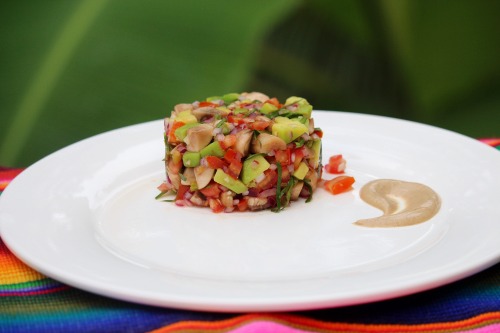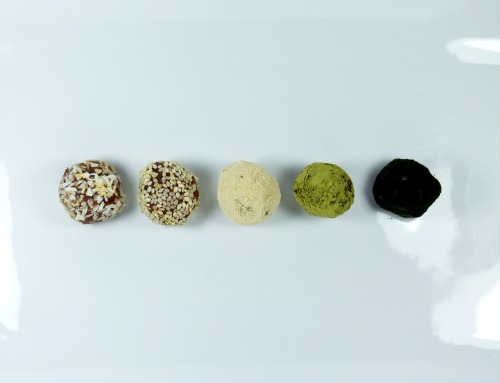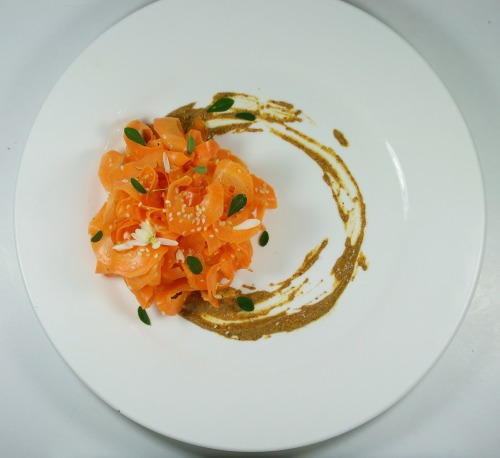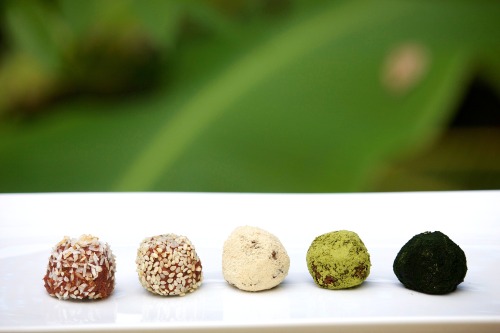#micronutrients

Calculating macros will only take you so far, because your body and its needs, is more complex than that. Really, it’s about your micronutrients. I repeat, quality matters. #fuelright #cellhealth #eatgoodfeelgood #diseasefighting #integrativenutrition #vitamins #minerals #antiinflammatory #health #healthy #weightmanagement #weightloss #nutrition #foodheals #supplements #nutritionfacts #immunesupport #immuneboostingfoods #holistic #holistichealth #holistichealing #eatlikeyougiveAF #qualitymatters
1. Mushrooms ceviche. chipotle crema
2. Superfood energy truffles
3. Moringa carrot salad. carrot mole. sesame lime dressing
4. Fermented coconut yogurt
5. more truffles!
Post link
Nutrition is a natural concern for any new or transitioning vegan. We are all raised to believe that animal products are an essential part of the human diet, and that avoiding them will inevitably lead to deficiencies. This just isn’t the case, both the Academy of Nutrition and Dietetics and the National Health Service have released public statements to clarify that plant-based diets are healthful, nutritionally adequate, and may provide health benefits for the prevention and treatment of certain diseases. There are some vitamins people tend to worry about more than others, so we will discuss each of these in turn.
The primary concern about vegan diets tends to be protein. This fixation on protein is quite strange, since protein deficiency is pretty rare for anyone who isn’t malnourished. There is no significant evidence to suggest that adequate protein cannot be easily acquired without animal products. This makes sense when you think about it, since all protein is originally derived from plants. Unless you are a serious athlete then protein will not really be something you even need to think about when going vegan, and if you do require extra protein, there are plenty of plant-based sources that supply protein cheaply and in abundance.
Another common concern is calcium, which again is largely unfounded. Cow’s milk is advertised as being high in calcium primarily because it is usually fortified with it, but vegan products like almond, oat and soy milk are fortified in exactly the same way, in equal and often greater quantities. Aside from these products, dark leafy greens pack plenty of calcium to meet your needs. Daily requirements for adults are around 1000mg, but this is easily reached through plant sources. Collard greens for example are 260mg per cup, spinach is 250mg, bean sprouts are 320mg and bok choy is 330mg per cup. A single cup of some fortified cereals with a cup of plant milk can meet your entire daily requirements on it’s own in some cases, and 4 or 5oz of fermented soy products like tofu comes in at around half that. Calcium is present in such a variety of plant foods, meaning that meeting your requirements is achievable without much conscious effort.
After these two, iron is often cited as a concern, particularly so for women. Adult men require around 8mg a day, and women around 18mg. Plenty of plant foods are very high in iron, for example, half a cup of tofu carries 6.6mg, one cup of soybeans is 8.8mg, a cup of white beans is 7.8mg, a cup of lentils is 8.8mg and spinach is 6.4 mg per cup. If you are consuming a diet primarily built around plants, even if they are frozen or canned, you should reach this amount just from enjoying a varied diet with plenty of fruit and vegetables. On top of this, many faux meat products are fortified with iron, as are various cereals and plant milks. If you track your daily iron intake using any nutrition app is it likely that it will show you that you already get enough, but if you don’t, then incorporating plant foods that are high in iron should be relatively easy for most people.
Omega 3 is raised often as something that vegans can’t obtain, and many people point to how many vegans are deficient in Omega 3 as a way to attack veganism. The issue with this logic is that it assumes Omega 3 is a vegan problem when it is more of a flaw of modern diets in general. Studies on this are sparse, but most estimate that 60% of Americans are deficient in Omega and others put the number as high as 90%. None of this means that it isn’t possible to get enough of this as a vegan; the recommended daily of Omega 3 is 1.6g per day for adult men and 1.1g per day for healthy adult women. This amount can easily be obtained with a small handful of just about any type of nut or seed. Beans, legumes, and wheat germ are also high in Omega 3.
B12 is bought up more often by people who are a little more knowledgeable about veganism and where the main nutritional difficulties lie. B12 is another vitamin that a high proportion of the general population are deficient in. B12 is produced by a microbe which primarily exists in soil; we once obtained this from all vegetables naturally, but modern hygiene and intensive farming practices means that the usable amount of vitamin B12 in our diets is now much lower. Experts disagree on this, but the conventional wisdom has been that no foods now naturally contain B12. Fortunately, most plant milks, specialist products like nutritional yeast and faux meat products are fortified with high levels of B12.
Despite the fact that it is more than possible to achieve a full and balanced diet as a vegan, it is a good idea to take a supplement just to be safe. Specialist vegan multivitamins are common in many supermarkets and health stores, as well as being widely available online. It may also be a good idea to supplement Omega 3 (algae/flax-seed oil derived vitamins are the best vegan source) and possibly iron if you don’t feel like you eat enough greens.
Supplements should not be used in place of plant-based sources for any of these vitamins, they are meant to supplement a healthy diet and provide extra intake of nutrients you may have fallen short on over the course of the day. If you have any specific dietary requirements and need more support in catering a vegan diet to your needs, setting up an appointment with a nutritionist would be ideal.
-An extract from my free eBook: The Green Road - A Practical Guide to Veganism

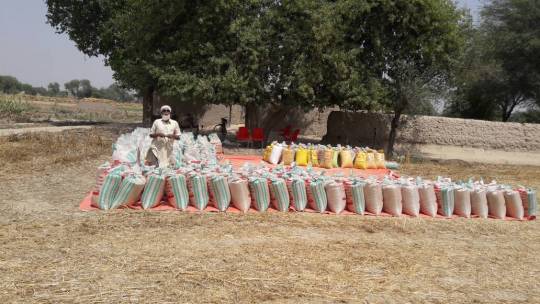
Zinc deficiency affects around 17% of the world’s population, mostly in developing countries. In Pakistan, the most recent national nutrition survey indicated that over 40% of women are zinc deficient. Stunted growth and development in children, increased susceptibility to infections, and complications during pregnancy and childbirth are just some of the consequences of zinc deficiency. Potentially leading to severe illness and death, this seemingly invisible deficiency has a negative economic impact on the family, the community, and the region more broadly.
So in May 2017 a group of researchers from the University of Central Lancashire started investigating whether a newly developed strain of biofortified wheat could increase dietary zinc intake in Pakistan by integrating the wheat into normal eating habits, and is being used is used to make chapattis – a staple food in the brick kiln communities of Peshawar.
Biofortified crops are developed using conventional plant breeding techniques, like cross-breeding standard varieties with their wild relatives over several generations. This means that biofortified crops are often more resilient to pests, diseases, higher temperatures and drought, as well as having higher micronutrient concentrations, such as zinc.
The trials were successfully completed in February this year, and the team are heading out to Pakistan this month to meet with research partners. The next steps are laboratory analysis, data entry and statistical analysis, and the team hope they will show improved zinc status associated with consuming bio-fortified zinc flour.

